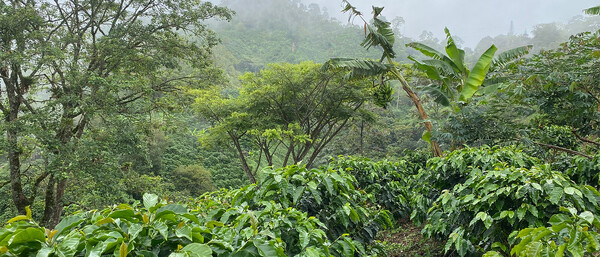
The Tchibo coffee country programme (10)
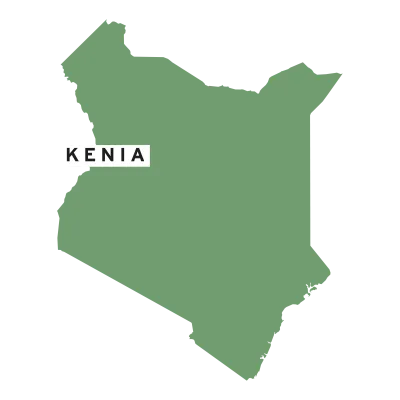
So far, six countries have been part of our coffee programme. Now we are adding a seventh: our project in Kenya has started and Kenya is now officially part of our coffee programme. Our Tchibo sustainability activities in Kenya already have a long history. The first major Mount Kenya project started back in 2010 and we are delighted to be active in this region again with new partners as part of our Tchibo coffee programme. Of course, we will be taking you on the journey again, so come with us to East Africa, more precisely to Kirinyaga on Mount Kenya!
Kenya, one of the best-known coffee-growing countries, located in East Africa and bordering other coffee countries - such as Ethiopia, Tanzania and Uganda - as well as the Indian Ocean to the south-east, offers excellent growing conditions for the coffee plant with its volcanic area around Mount Kenya. The name of the region "Kirinyaga" comes from the language of the indigenous Kikuyu people and means "the shining mountain", referring to Mount Kenya.
"NKG's collaboration with the Inoi Cooperative and the other partners reflects the revitalised interest of Kenyan communities in coffee farming. This cooperation will contribute to a sustainable increase in coffee productivity and thus also to an improvement in people's livelihoods and greater environmental protection." William
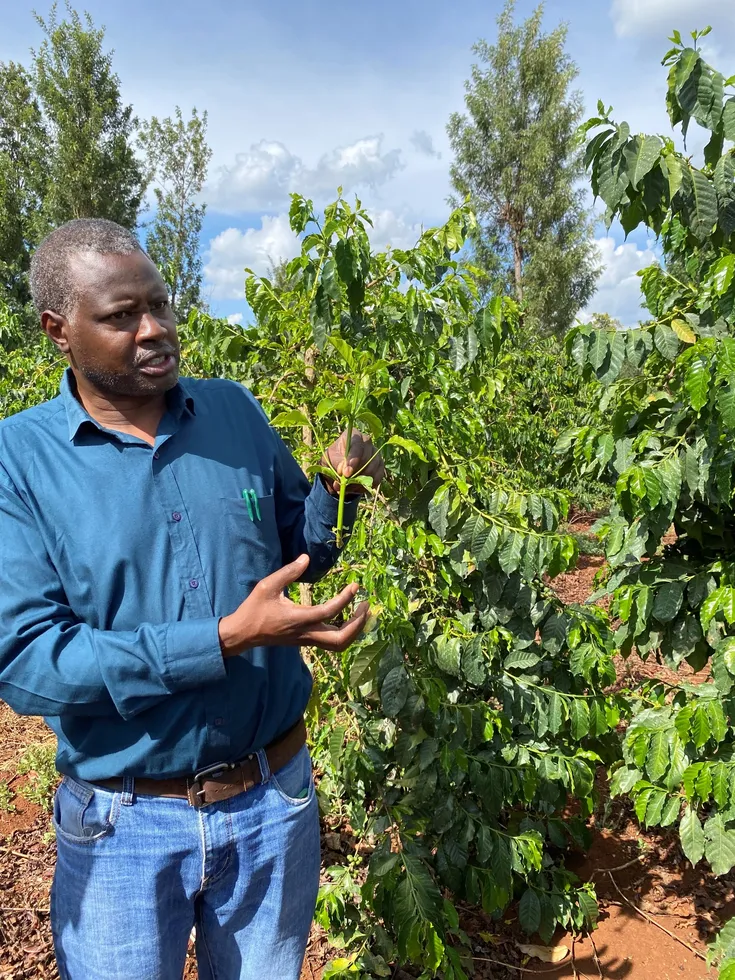
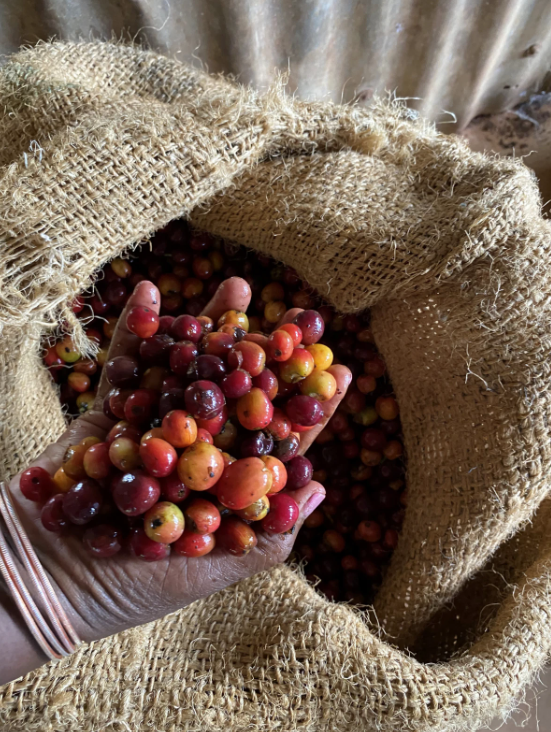
Climate change, soil erosion, loss of biodiversity and, of course, farm income - these are the challenges identified in Kenya. Accordingly, our goals in the project are: adaptation to climate change by promoting regenerative cultivation practices, increasing productivity and quality, income diversification as well as gender and youth inclusion. This is how the project is organised:
New (but familiar) project partners
Together with Rainforest Alliance and Ibero (NKG) Kenya, we work with the Inoi Farmer Cooperative Limited, in Kirinyaga. Rainforest Alliance?
Yes! At first glance, this partnership may come as a surprise to some, as we have only just removed the Rainforest Alliance seal from some of our product packaging. However, this project is not about the seal or certification! We are project partners in the project and are thus jointly supporting the progress of the project on Mount Kenya. It was clear to us from the outset that we could also work with partners such as Rainforest Alliance outside of traditional certification. The organisation is an important and experienced player in the coffee sector and has been pursuing a landscape approach in the Mount Kenya region for several years, which focuses on sustainable agriculture and empowerment of the farming communities, among other things. This naturally offers advantages for the project work on the ground, as the effectiveness of the project will benefit from this experience and its integration into a larger approach.
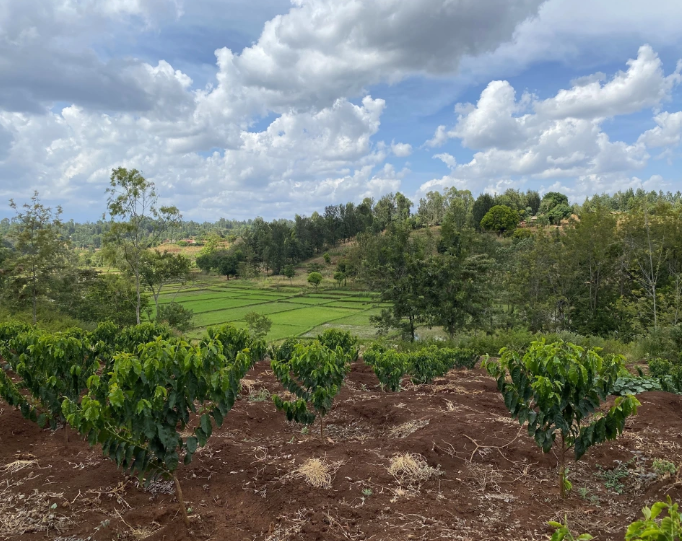
What is the project about?
The Inoi cooperative has around 5,000 active members. Our project is all about supporting these farmers - focussing on topics such as sustainable farming practices, increasing productivity and diversifying incomes. In particular, we want to provide better support for young people's and women's groups.
Specifically, in this project we will train so-called "lead farmers" and employees of the cooperative. The focus is on knowledge about sustainable cultivation practices, composting and organic fertilisers and coffee processing. The "lead farmers" then pass on the knowledge they have learned to their neighbours and peers, with additional support from agronomists who accompany the project. The project also finances the establishment and maintenance of tree nurseries for coffee seedlings and shade and fruit trees, as well as the construction and improvement of demo farms, some of which already exist on the cooperative's premises. On the one hand, we want to implement regenerative cultivation practices to demonstrate their impact and, on the other hand, increase productivity so that the cooperative can generate additional income, which can be used to make important infrastructure improvements, among other things.
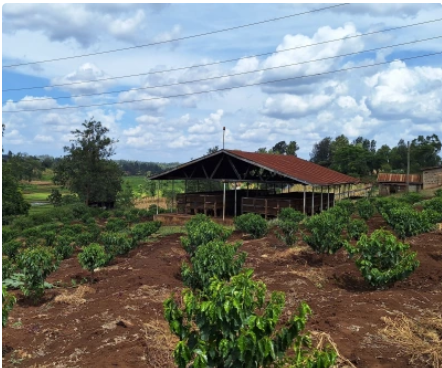
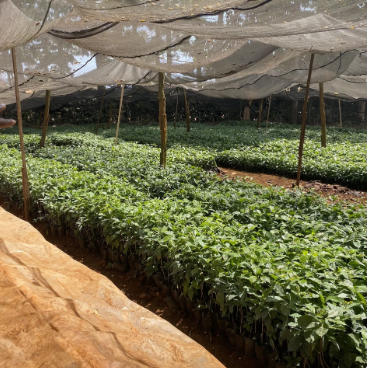
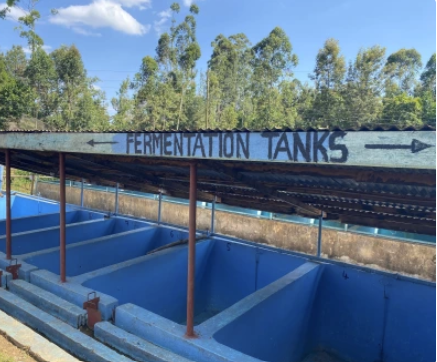
Project status: What has already happened? And what's next?
Our first visit to the cooperative took place in March. During this trip, we also held the first workshop with the project partners and representatives of the cooperative. The aim was to develop a common understanding of our goals and measures and to incorporate the needs of the cooperative and the farmers. And we managed to do that!
At the official project launch in June, almost 1,000 coffee farmers, youth and women's groups as well as important stakeholders from the coffee sector came together. Together with our project partners, we were able to present our programme, arouse the interest of the farmers and thus lay the foundation for future activities.
The training sessions for lead farmers in cooperation with the Kenyan Coffee Research Centre (CRI) have already begun in August. As the next harvest season in the Mount Kenya region starts in October, we will also be training the employees of the cooperatives on quality assurance in the wet processing of coffee.
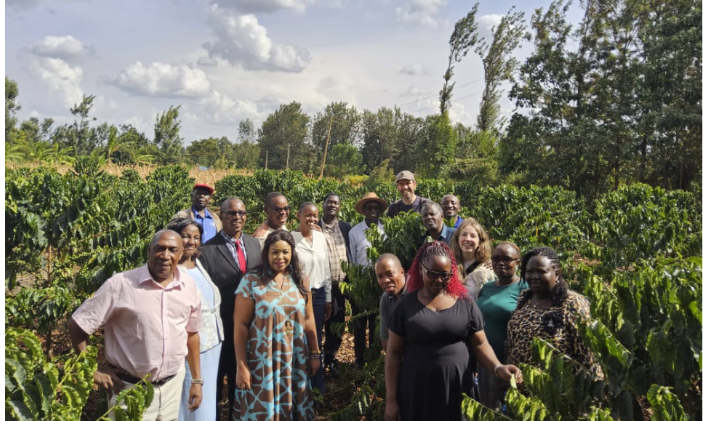
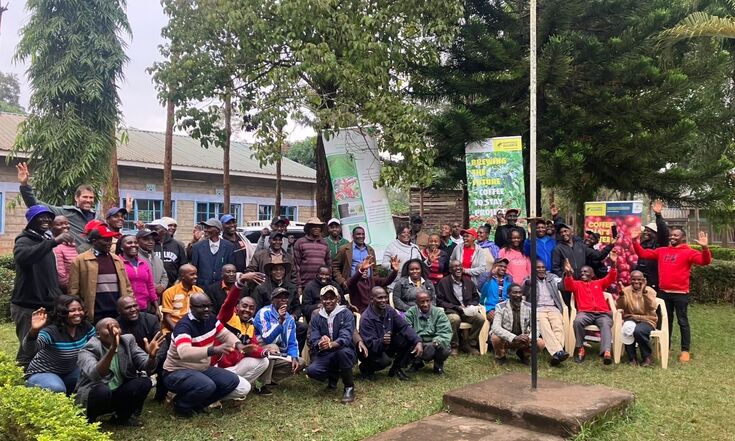
Our Tchibo coffee programme | In brief:
As a family business, it is a matter of course for us to take responsibility. With our coffee programme, we are gradually working towards this in many coffee-growing regions - for better living and working conditions and more environmental protection:
- Support for people and nature through sustainability projects at the source - independent of external labels
- Solving problems together with the farmers and with strong local partners
- Verification of progress through independent analyses of the green coffee supply chains of "Enveritas"
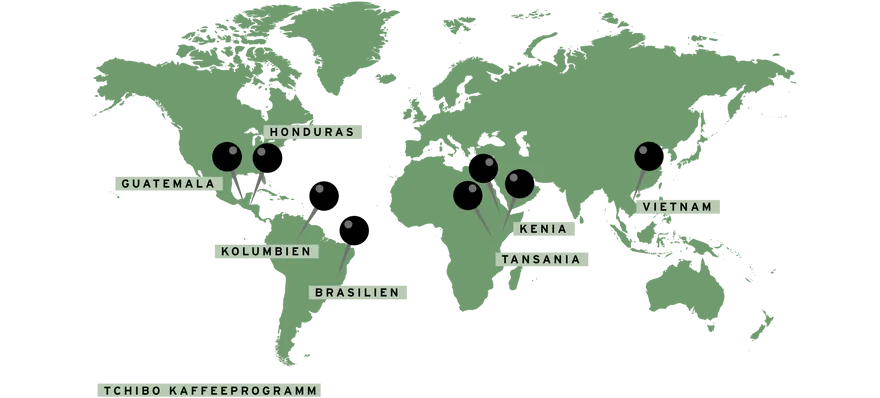
The Tchibo coffee programme.

